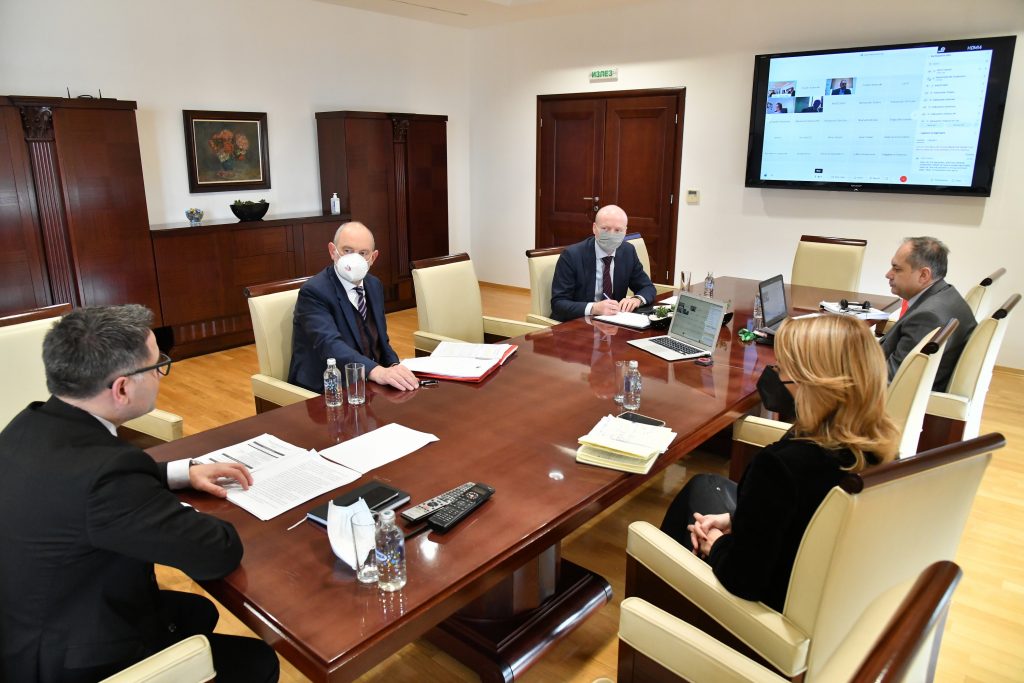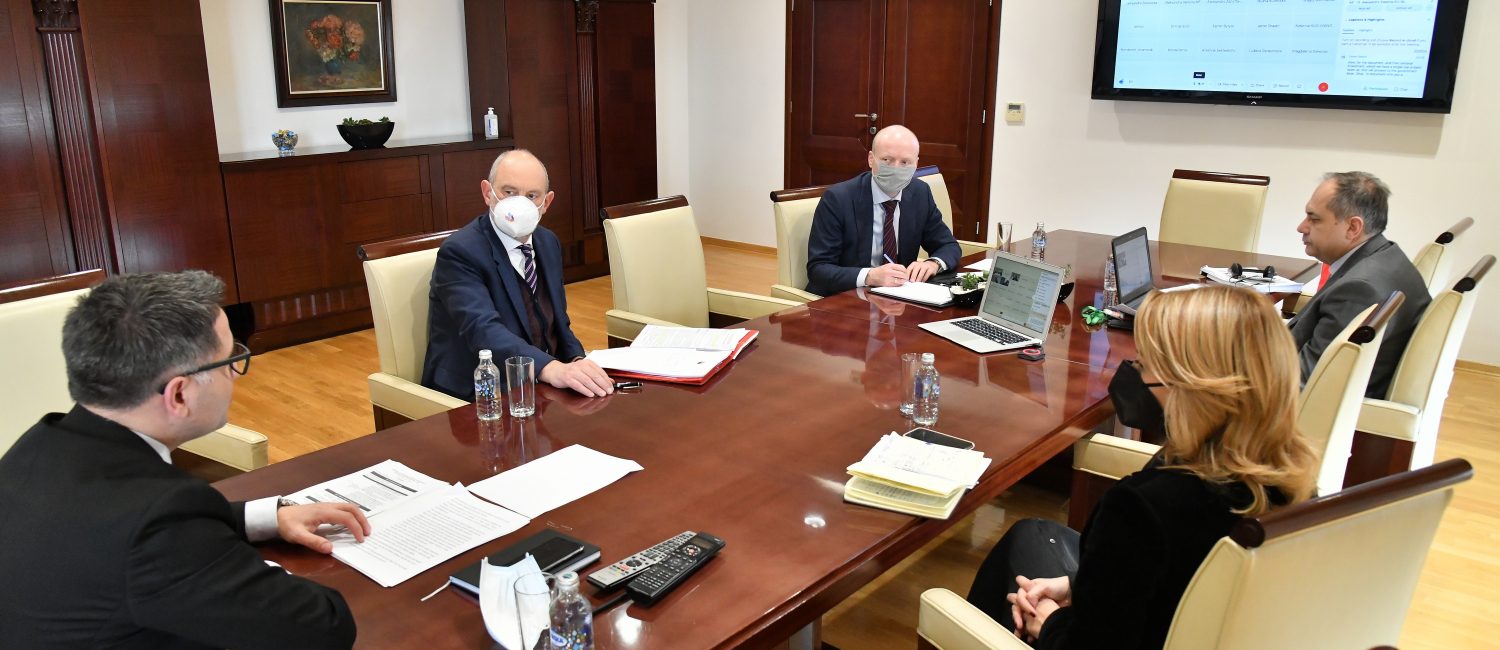26th January 2021, Skopje – The Government adopted the three-year structural reform strategy – 2021-2023 Economic Reform Program (ERP). This strategic document is exceptional important segment of the European Union accession process. The Program, the preparation of which is coordinated by the Ministry of Finance, contains medium-term macroeconomic and fiscal framework, as well as structural reforms to be implemented, set through a joint dialogue with the European Commission.

2021-2023 Economic Reform Program covers 20 priority measures (reform areas) which are to be implemented in the coming three years, aimed at energy and transport market reform, agriculture sector development, improvement of business environment and reduction of informal economy, support to research, development and digital transformation, regional economic networking, education and skills, social protection and inclusion, as well as healthcare.
As regards energy and transport market reform, measures are envisaged for boosting competitiveness of the electricity market, promoting renewable energy sources, improving energy efficiency and implementing intelligent transport system along Pan-European Corridor 10.
With respect to agriculture sector development, measures are envisaged for improving the systems for irrigation, consolidation and defragmentation of agricultural land, establishment of agricultural cooperatives and improvement of access to arable agricultural land.
The Program also envisages measures aimed at improvement of the business environment and reduction of the informal economy. With respect to improvement of business environment, it is envisaged to rationalize para-fiscal charges and to establish single registry thereof, to establish e-marketplace for small value procurement and to support newly established small- and medium-sized enterprises in underdeveloped regions. To the end of reducing informal economy, measures will be undertaken to encourage the registered economic activities and transactions, focusing on the sectors with the highest probability for undeclared jobs.

Measures aimed at supporting research, development and digital transformation include extension of the scope of services on the National E-Services Platform, as well as improvement of the academia-industry cooperation.
As regards regional economic integration, measures covered are aimed at simplifying the cross-border inspection and customs procedures and strengthening the country’s internal market.
ERP also envisages activities aimed at improving the results of the education process and reducing the mismatch of skills and qualifications with the needs on the labour market. At the same time, activities will be undertaken pertaining to the implementation of the Law on Social Protection, in particular with respect to vulnerable groups and increased activity of working-able population. Health sector is included in the Economic Reform Program for the first time, envisaging activities aimed at improving the healthcare of the population.
2021-2023 ERP will be submitted to the European Commission by the end of January 2021. Following its submission, EC will assess it. At the end, dialogue will take place between the European Council and the Ministers of Finance and Governors of Central Banks of the EU candidate countries from the Western Balkans and Turkey. Dialogue outcome is adoption of joint conclusions on the basis of ERP assessment, followed by recommendations on economic policy improvements, all to the end of accelerating the economic convergence, increased competitiveness of the business sector and job creation.
















